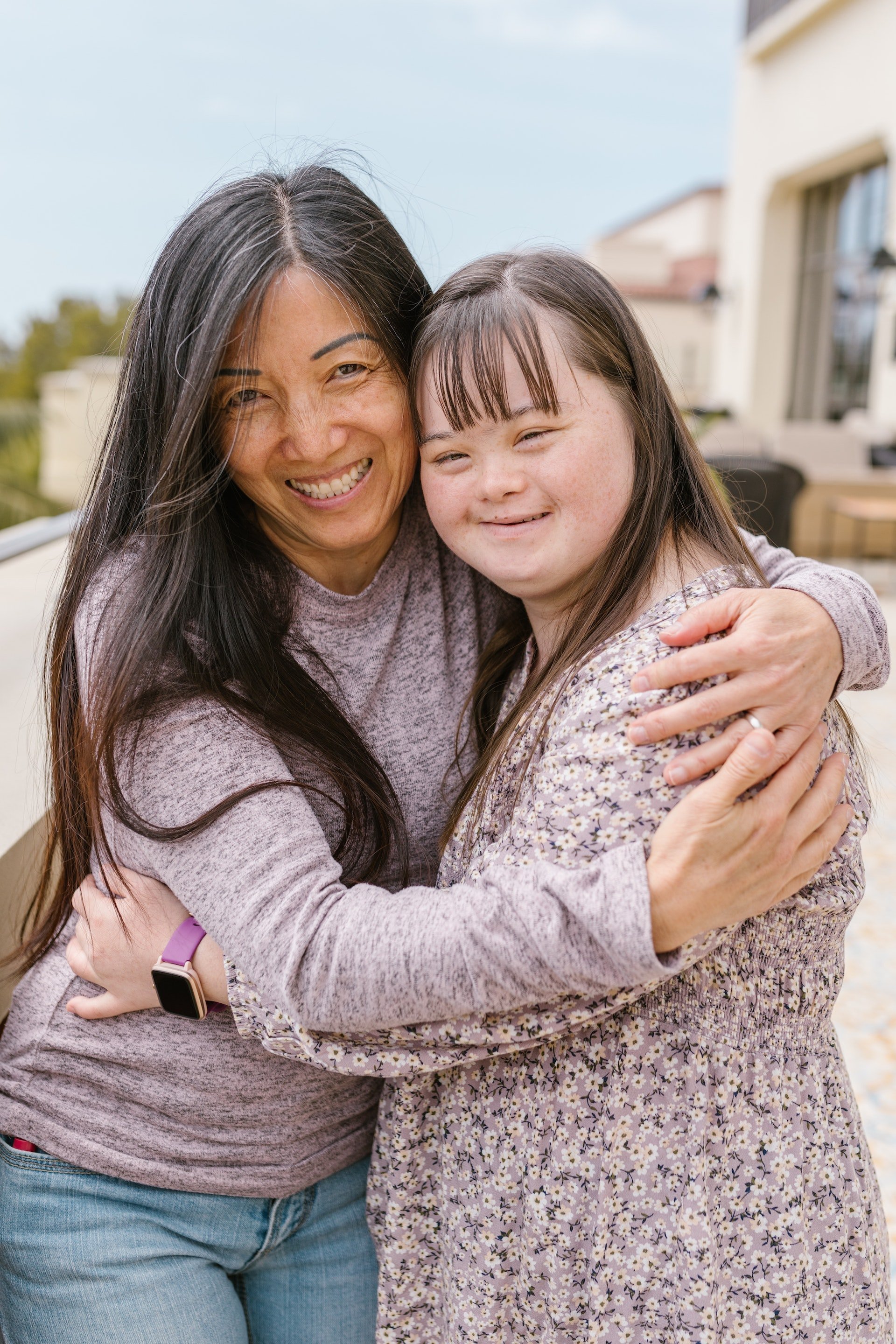case studies
Cases by Topic
- Behavioral Services not Baker Act 1
- Discrimination on the Basis of Disability 6
- Discrimination on the Basis of Race 2
- Discrimination on the Basis of Sex Gender Identity and Sexual Orientation 5
- Drivers’ License Suspensions for Municipal Ordinance Violations 1
- Ensuring Due Process 7
- First Amendment 5
- Food Sharing is Not a Crime 2
- Government Accountability & Access to Courts 4
- High Quality Education 4
- Home & Community-based Medicaid Services 13
- Homeless 12
- Juvenile Justice 3
- LGBTQ Rights 3
- Mental Health 5
- Promoting Fairness and Due Process 7
- Property Sweeps 2
- Protecting Freedom of Speech 3
- Right to Ask for Help 3
- Right to Be in Public Places 2
- Sleeping is a Human Need 1
- Students with Disabilities 6
- Transgender Rights 2
S.H. v. Edwards
We represented amicus curiae National Association of Protection & Advocacy Systems (P&As) and all former Fifth Circuit P&A's in this case involving the issue of the right to habilitation of a class of individuals with developmental disabilities in the least restrictive environment.
Van Swearingen v. Florida Health & Rehab. Services
We represented a client with Prader-Willi Syndrome, a rare debilitating genetic disorder which manifests in an uncontrollable and continual desire to eat. The client’s condition had deteriorated to a crisis, life-threatening situation. We filed an administrative proceeding to require the Florida Department of Health & Rehabilitative Services (HRS) to place him in an appropriate group home, as he had been on a waiting list for about seven years.
Parker v. King-Shaw, Jr. & Kearney
We represented an individual who became a quadriplegic after a diving accident and had a medical need for a ventilator to breathe and a personal care attendant. The State’s Medicaid policy only provided the ventilator services and a personal care attendant in a nursing home or hospital, not in a home. We challenged this policy through a preliminary injunction request alleging violations of the federal Medicaid Act and the Americans With Disabilities Act. After a status conference, the parties settled, and the State agreed to provide all needed services in the home.
Sosa, et al., v. Agency for Health Care Admin.
Sosa challenged a proposed agency rule that would have limited personal care assistance to 300 hours per month, regardless of medical need. We settled the case, and AHCA amended the proposed rule to eliminate the 300-hour limit. The Advocacy Center for Persons with Disabilities (now Disability Rights Florida) was co-counsel.
Dubois v. Calamas & Francois
We filed a statewide class action challenging the State’s administration and wait list for the Brain and Spinal Cord Injury Medicaid Waiver Program. Through a settlement, the State developed a new Handbook and Operating Procedures on freedom of choice and due process rights. It also provided additional funding to expand the program by a minimum of 200 slots over three years. Co-counsel were Legal Advocacy Center of Central Florida & National Health Law Program.
London, et al., v. Agwunobi & Johnson
Individuals with developmental disabilities challenged a new state statutory cap on personal care assistance (PCA) under due process and the Medicaid Act. The Florida Legislature amended the statute to eliminate an outright cap on PCA for adults in community settings. PCA for children was transferred to the state Medicaid program to avoid the Medicaid waiver service limitations and to comply with the Medicaid Act’s mandates under Early Periodic Screening Diagnosis and Treatment. Plaintiffs then voluntarily dismissed the case. Co-counsel were Florida Legal Services, Advocacy Center for Persons with Disabilities (now Disability Rights Florida) & National Health Law Program.
Long et al. v. Benson et al.
This statewide class action challenged the State’s lack of services in the community for Medicaid nursing home residents who wanted to live in the community. The claim was under the Americans With Disabilities Act and Section 504 of the Rehabilitation Act, which require states to provide services in the most integrated setting appropriate for the individual.
Parrales et al. v. Dudek
Five individuals with disabilities challenged the State’s implementation of the Long-Term Care Medicaid Waiver program by private managed care organizations, which were arbitrarily denying needed services in the community
Alexander, et al. v. Mayhew et al.
We represented seniors and people with disabilities who are on the state’s wait list for home-based long-term-care services and at risk of unnecessary and unwanted institutionalization. After filing a challenge under the Americans With Disabilities Act, we obtained full services for four plaintiffs, and an agreement that the State would build a website that provides information about long-term care services in one place, as it was extremely difficult to get any online information.
Grayson, et al. v. J.P. Florida Productions, et al.
J.P. Florida Productions recruited men experiencing homelessness and mental illnesses or other disabilities to participate in “homeless beatdowns.” The company's employees offered the men $50 to let a female mixed martial arts fighter beat them for 12 minutes on camera. The men were not permitted to defend themselves and suffered multiple injuries as a result of the beatings, including broken bones and other serious injuries. Their beatings were taped and sold on the company's website.
Henry, et al., v. National Hous. Partnership, as Gen’l Partner of Kennedy Homes Ltd. Partnership, et al.
In 2003, a fire engulfed Kennedy Homes, a federally subsidized multi-family housing complex for low- and extremely low-income families located in Gainesville. The fire was caused by leaking gas lines, a symptom of years of neglect and poor maintenance. The complex was closed due to unsafe conditions, and all of the residents were forced to relocate.
Arnao v. Landmark Residential, et al.
Historically, race discrimination by property owners and real estate agents helped create dramatic patterns of housing and neighborhood inequality. We helped individuals remedy race discrimination in housing on behalf of Antoinette Arnao, an African-American woman who experienced discriminatory treatment when attempting to lease an apartment in Central Florida. The leasing agent refused to show her an available unit or provide her with an application, but then treated a white individual more favorably when she visited the same complex a few days later. SLC filed a race discrimination lawsuit in federal court, which was settled to provide damages to Arnao.
Collier Cnty. v. Training & Educ. Ctr. for Handicapped
SLC brought the first lawsuit under federal disability discrimination laws to challenge Florida’s application of zoning restrictions on group homes for persons with disabilities. The lawsuit was initiated by Collier County for alleged public nuisance and local zoning code violations that restricted non-familial residential groups. We filed counterclaims on behalf of residents with disabilities based on the federal Rehabilitation Act and Civil Rights Act, and our federal constitutional claims were upheld by the trial court.
Counts v. U.S. Postal Serv.
In one of the first cases to challenge federal agency employment discrimination based on disability (here, history of epilepsy), the federal appeals court established a private cause of action which allows persons to bring future lawsuits to challenge discrimination. This precedent was followed by other federal courts of appeal and subsequently was adopted by the U.S. Supreme Court. Co-counsel was John R. Nettles.
Kelley v. Bechtel Power Corp.
In a case under the Florida Human Rights Act to challenge the termination of an employee because of his perceived history of epilepsy, the federal district court wrote a comprehensive opinion setting out the procedures, burdens of proof, and substantive standards for disability employment cases that became the benchmark for future cases under Florida law. Co-counsel was Neil Chonin.
Arline v. Nassau Cnty. Sch. Bd.
To protect the rights of employees with contagious diseases, SLC co-authored a brief in a case that resulted in a landmark U.S. Supreme Court decision that people with tuberculosis and other contagious diseases are covered by federal anti-discrimination laws. The Court ruled that employment cannot be terminated without an objective showing of a probable risk of harm to others. Lead counsel was George K. Rahdert.
Carr v. Upper Pinellas Ass’n for Retarded Citizens (UPARC)
We defended a service provider for individuals with intellectual and developmental disabilities against an attempt to block the establishment of a group home in a residential district. The trial court’s holding that group homes can be barred by a deed restriction limiting use of subdivision property to single families was unsuccessfully appealed. Subsequent legislation in the Florida 1989 session, known as the Community Residential Homes Act, created a new Chapter 419 and alleviated the problem of barriers to siting of group homes for disabled citizens.
Hernando 515 v. Simmons
SLC defended a tenant with mental illness in an eviction action filed by the owner of a privately owned, but federally subsidized, housing complex for the elderly and persons with disabilities. The tenant’s sole source of income was his Social Security disability payment. If evicted, it was unlikely he would find other housing. The eviction action alleged lease violations for behaviors that were directly related to his mental illness. We requested, as a “reasonable accommodation” under the Fair Housing Act, that the owner suspend the eviction to allow time for our client to seek and receive additional treatment for his mental illness, but the management did not respond. We settled for damages and dismissal of the eviction action.
Pride Community Ctr. of N. Ctrl. Fla. v. Ron Chambers Group, LLC
All people should be able to access places of public accommodation, including facilities that offer lodging, food, entertainment, health care, professional services, or recreation. However, federal and state law currently do not provide explicit protection from discrimination on the basis of sexual orientation or gender identity at places of public accommodation. Several cities and counties, including Gainesville, have added sexual orientation and/or gender identity as protected classes under local human rights ordinances to provide these protections.
Claire, et al. v. Fla. Dep’t of Mgmt. Serv. et al
Plaintiffs Jami Claire, Kathryn Lane, and Ahmir Murphy are state employees who have been denied medically necessary treatment for gender dysphoria because of the state’s categorical exclusion of coverage for medically necessary gender-affirming care in health care plans provided to state employees. Some transgender people experience gender dysphoria, the medical diagnosis for the clinically significant distress sometimes resulting from the incongruence between a person’s gender identity and their sex assigned at birth. Left untreated, this serious medical condition often leads to debilitating distress, depression, anxiety, impairment of function, and self-harm, including suicide.




















